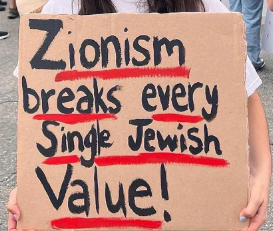Summary: the distinguished historian Avi Shlaim argues that in its war with Gaza, Israel openly displays its true colors as a Eurocentric settler-colonialist and apartheid state.

In a recent podcast hosted by Arab Digest, the distinguished historian Avi Shlaim shared profound insights into the complex dynamics of Israel’s identity and its ongoing conflict with Gaza. Shlaim, an Emeritus Professor of International Relations at St. Antony’s College, Oxford, recently published his memoir, “Three Worlds: Memoirs of an Arab-Jew,” which intricately weaves his personal experiences with broader geopolitical themes. This blog delves into Shlaim’s perspective on Israel as a Eurocentric settler-colonialist and apartheid state, as articulated in the podcast.
A Personal Journey: From Baghdad to Israel
In “Three Worlds,” Shlaim begins by recounting his early life in Baghdad before his family emigrated to Israel when he was five years old. The memoir reveals a poignant struggle with an inferiority complex rooted in his identity as an Arab-Jew in a predominantly European-style Israeli society. Shlaim poignantly describes his sense of alienation and the disdain for his Arab heritage, which was pervasive in Israel at the time.
“If I had to identify one key factor that shaped my early relationship to Israeli society, it would be an inferiority complex. I was an Iraqi boy in a land of Europeans,” he reflects.
Shlaim’s narrative challenges the Israeli notion that being both Jewish and Arab is an ontological impossibility. His memoir serves as a testament to the rich cultural tapestry of Arab-Jews who were integral to the Middle Eastern mosaic before being uprooted.
Israel as an Apartheid State
Shlaim’s critique of Israel extends beyond his personal experiences. He categorically labels Israel as an apartheid state, a conclusion supported by numerous human rights organizations, including B’tselem. These organizations argue that from the Jordan River to the Mediterranean Sea, there exists a singular, oppressive regime that discriminates against Palestinians, both within Israel and in the Occupied Territories.
“For me, it’s not a matter for debate, or a matter of dispute… It’s a Jewish supremacist regime with second-class citizens – the Palestinian citizens of the State of Israel – and third-class citizens, who are the Palestinians in the Occupied Territories, who have no political rights at all.”
Shlaim emphasizes that criticizing Israel’s policies is not anti-Semitic but a necessary distinction between anti-Semitism (hatred of Jews) and anti-Zionism (criticism of Israeli state policies).
The Erasure of Culture and History
The historian draws parallels between the erasure of Arab-Jewish culture in Israel and the ongoing erasure of Palestinian culture. Both groups have faced displacement and cultural suppression. Shlaim laments that the potential for Arab-Jews to act as a bridge between Israel and the Arab world was never realized due to the Ashkenazi elite’s Eurocentric vision.
“Israel is a European-style state in the heartland of the Middle East… Israel has never wanted to be part of the region.”
The Gaza War: A Reflection of Deep-Rooted Issues
The recent conflict in Gaza exemplifies Israel’s reliance on military force rather than political solutions. Shlaim criticizes the cyclical violence and the West’s hypocritical stance, providing unconditional support to Israel despite its actions.
“Western leaders have still, two months after the outbreak of the war, not called for a ceasefire, only for a humanitarian pause… This will be to the eternal shame of the Western powers.”
Pessimism About Change
Shlaim expresses a bleak outlook on the prospects for change within Israel or its relationship with the United States. He argues that Israel’s identity as a settler-colonialist state precludes genuine peace with the Palestinians, and American support remains unwavering and uncritical.
“There is no impetus for change from inside Israel… The cycle of violence will continue forever.”
Conclusion
Avi Shlaim’s insights provide a sobering reflection on Israel’s identity and its policies towards Palestinians. His memoir and the podcast underscore the importance of recognizing and addressing the historical and ongoing injustices faced by both Arab-Jews and Palestinians. Shlaim’s critique invites a re-examination of widely held assumptions and a call for a more nuanced and just approach to the Israeli-Palestinian conflict.
